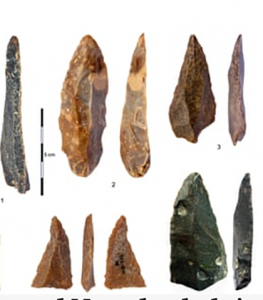New research finds evidence of an ancient multicultural Europe
A fascinating picture of ancient migration into Europe that has emerged from new research is raising moral and ethical questions over the Euro bloc’s increasingly draconian asylum and migration policies.
Genetic sequencing of human remains dating back 45,000 years has revealed a previously unknown migration into Europe and showed intermixing of Homo-sapiens and Neanderthals in that period was more common than previously thought.
 The research is based on analysis of several ancient human remains, including a whole tooth and bone fragments, found in a cave in Bulgaria last year.
The research is based on analysis of several ancient human remains, including a whole tooth and bone fragments, found in a cave in Bulgaria last year.
Genetic sequencing found the remains came from individuals who were more closely linked to present-day populations in East Asia and the Americas than European populations.
“This indicates that they belonged to a modern human migration into Europe that was not previously known from the genetic record,” the researchers said in an article published in the journal Nature.
The research also “provides evidence that there was at least some continuity between the earliest modern humans in Europe and later people in Eurasia”, the study said.
Lead researcher Mateja Hajdinjak, of Germany’s Max Planck Institute for Evolutionary Anthropology said the findings have: “shifted our previous understanding of early human migrations into Europe”.
“It showed how even the earliest history of modern Europeans in Europe may have been tumultuous and involved population replacements,” she said
A dispersal of human groups that then get replaced by other groups later on in West Eurasia, but continue living and contribute ancestry to the people in East Eurasia is one possibility raised by the findings.
The research comes amid a spike in the numbers of drownings among migrants attempting to reach Europe across the Mediterranean Sea.
Human rights groups, the UN’s migration and refugee agencies and international law experts say European countries too often ignore their international obligations to rescue migrants at sea.
And the UN’s refugee agency UNHCR and aid organisations have called for action to stop an increasing number of migrants drowning at sea on the central Mediterranean asylum seeker route.
The UNHCR and the International Organisation for Migration (IOM) are have expressed concern at a recent tragic shipwreck off the coast of Libya this month appears to have claimed the lives of up to 130 people.
So far this year, at least 300 other people have drowned or gone missing in the Central Mediterranean – a significant increase compared to the same period last year, when some 150 people drowned or went missing along the same route.
The UNHCR has warned that more migrants and refugees may attempt the dangerous crossing as weather and sea conditions improve and living conditions in Libya deteriorate.












